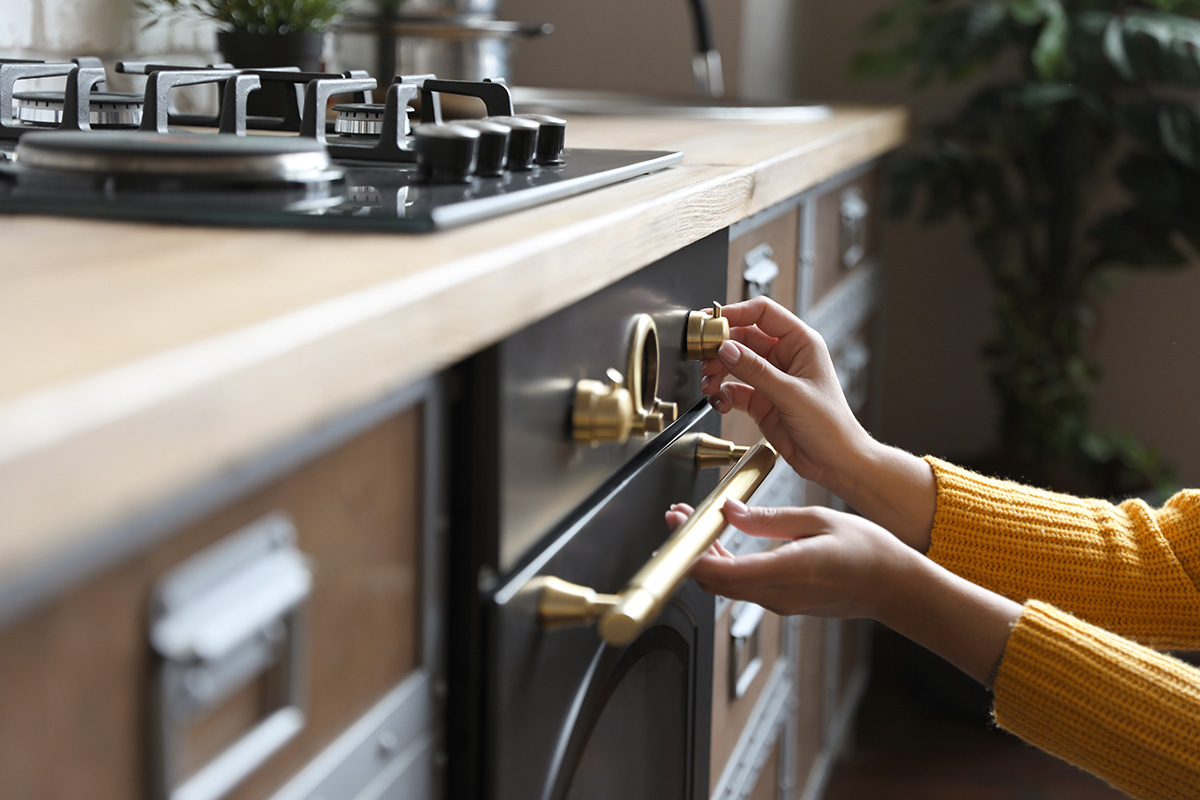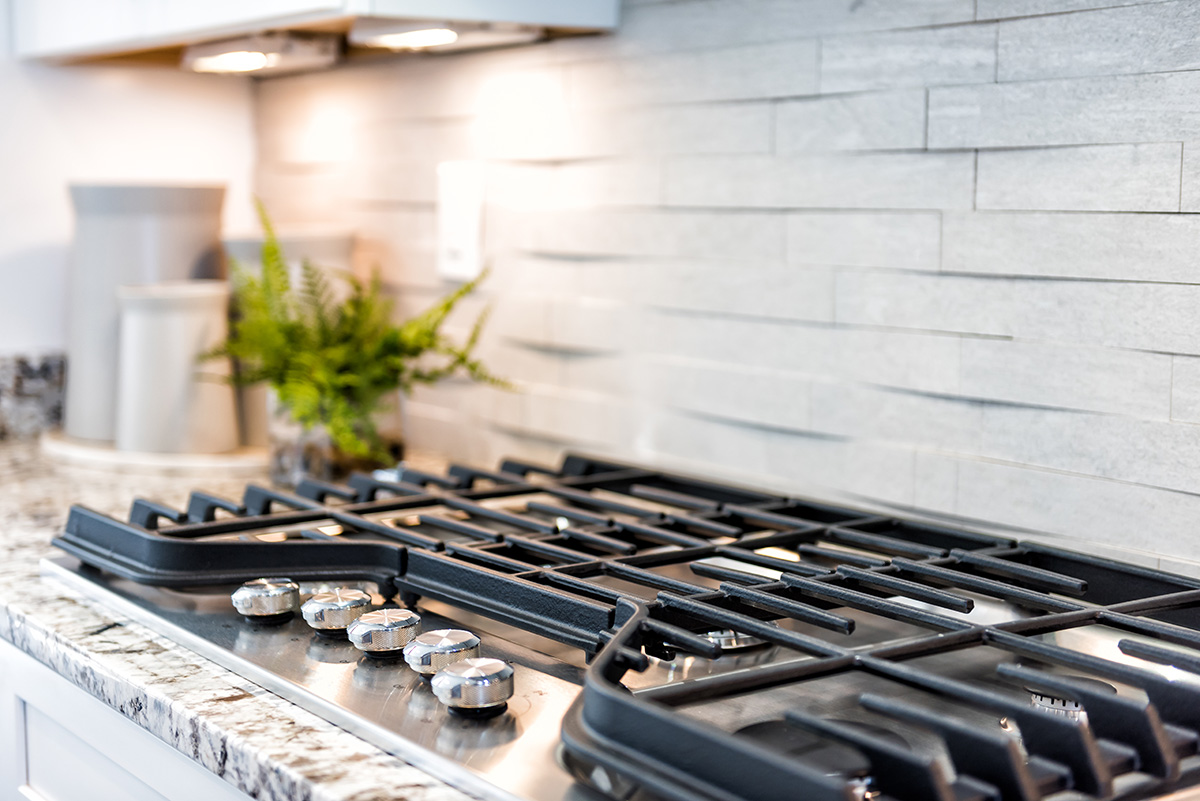Cost Savings
Appliance Purchase Costs
Electric appliances usually offer the cheapest appliances for basic hot water, cooking or heating appliances, but costs escalate for the more efficient electric options such as electric induction cooking or heat pump hot water systems. Induction cooktops require electrical circuits of 40 amps which may exceed the limits of many older homes and may mean increasing your homes electrical capacity, costing up to $2,000.
Natural gas appliances typically start at a slightly higher cost, but on average are in a similar price range. Each appliance requires a gas supply point in the home, which your gasfitter can install if it is not already available. Connecting your home to the natural gas supply is usually free.
Solar energy can be used for rooftop hot water tanks, but solar panels are now most common. Purchase costs varies depending on the level of energy they produce, but a typical family home system of 6.6Kw will cost approximately $3,500 plus installation.
Running Costs
Solar panels also work best with a north or west facing roof than and where the sun is not obstructed by hills or other buildings. With solar you should also consider if you will be at home using your solar energy, or if everyone is out during the day meaning the solar energy goes to the electricity grid and you will receive “feed in tariff” which may be only half* of what you pay for electricity you use in the evening. So, the best savings from solar panels are if you are at home during the day rather than at work.
So the lowest running cost option may be using natural gas appliances for cooking, hot water and heating and using solar energy to power your lights, televisions, fridge etc. That’s why natural gas and solar energy are great partners for the cheapest, cleanest, most reliable energy option in your home!
Appliances such as heaters, hot water and cooktops will typically last for more than 10 years, over which time the running costs will be a big factor in which appliance is the cheapest long term. It is also worth considering how your household size might change over that time, which impacts how much energy you will use.

Low cost electric appliances are usually the most expensive to operate, so may cost you a lot more over the longer term. This is especially true for electric room heaters and storage hot water systems.
Natural gas appliances will have lower running costs for all but the smallest households. Similar to electricity, there is a fixed supply charge for natural gas but the same amount of energy from natural gas is much cheaper and cleaner than grid electricity. Plus, natural gas gets cheaper the more you use, which suits medium and larger households.
Solar panels capture energy from the sun during the day, but when the sun is not shining appliances require electricity or natural gas to operate. And its during our cool winter, with lower sunshine hours, that you will probably use a lot more energy for heating, hot water and cooking.

Household Size
The number of people living in your home is one of the biggest influences for energy used. For a small household, with low energy consumption the additional initial cost of installing natural gas or solar panels will take longer to pay off due to lower usage. For an average home, higher energy consumption means investing more in upfront in energy solutions such as natural gas and/or solar panels will deliver quicker cost savings.
Location
Where you live can be a big influence on what is cheapest or most reliable energy options for you. If you are considering, will you have sufficient direct sunlight for solar panels to be a good option? And with Melbourne’s cool winter climate, it can impact the performance of electric heat pump appliances, just when you are most depending on the heater to warm the house and you want a warm shower!


Reliability
The need for reliable energy supply varies for different people. For some, an electricity outage may be little more than an inconvenience, but for others it can be life threatening. In recent years, the electricity supply in some areas has become increasingly unreliable due to factors such as high demand, storm damage or intermittent supply issues.
Having an additional energy source, such as natural gas can give you additional options and peace of mind when the electricity goes out. Natural gas is the most reliable home energy option, so even when your electricity is out, you can often still use natural gas for cooking, hot water or heating.
Solar panels may seem like a backup energy option, but usually they cannot provide a backup during an electricity outage as they must automatically turn off in an outage to avoid electricity being sent into the powerlines while repairs may be in progress.

Cleanest for the environment
Solar energy is the cleanest source of home energy, followed by natural gas and then network electricity. But when considering your home energy needs in total, the cleanest option may be using solar panels to run your electric lights and appliances during the day, natural gas for cooking, hot water and heating and grid electricity for other appliances when it is dark. This combination will reduce your use of grid electricity as much as possible which is important as 75% of Victoria’s electricity comes from coal which has the highest CO2 emissions**.
So, if you are planning an appliance upgrade or renovation, it’s worth remembering these key points:
- The cheapest upfront appliances are usually basic electric ones, but their higher running costs mean they could cost you a lot more over time. They can also be the least environmentally friendly option, as they are usually inefficient appliances running on electricity created from coal.**
- Natural gas is a much cleaner fuel than grid electricity and will be cheaper than electricity for most households in most areas. Natural gas appliances can be an excellent partner to solar panels as it will power the hot water and heating appliances you mostly use when it is dark.
- Installing solar panels is a significant upfront cost in addition to the electric appliance costs but can save you a lot when using solar energy during the day for lights, television/computers and refrigerator. But if you are usually out during the day, the solar power your panels produce is exported, and you will only get a small part of the potential savings.
Footnotes:-
* average tariffs are as per Origin Energy Citipower Tariff Zone (electricity) and Multinet Network (Natural Gas) as at Jan 2021
** AEMO Website Jan-Dec 2020 NEM Energy Mix


 Leak 132 691
Leak 132 691
 Fault 132 691
Fault 132 691
 General 1300 887 501
General 1300 887 501